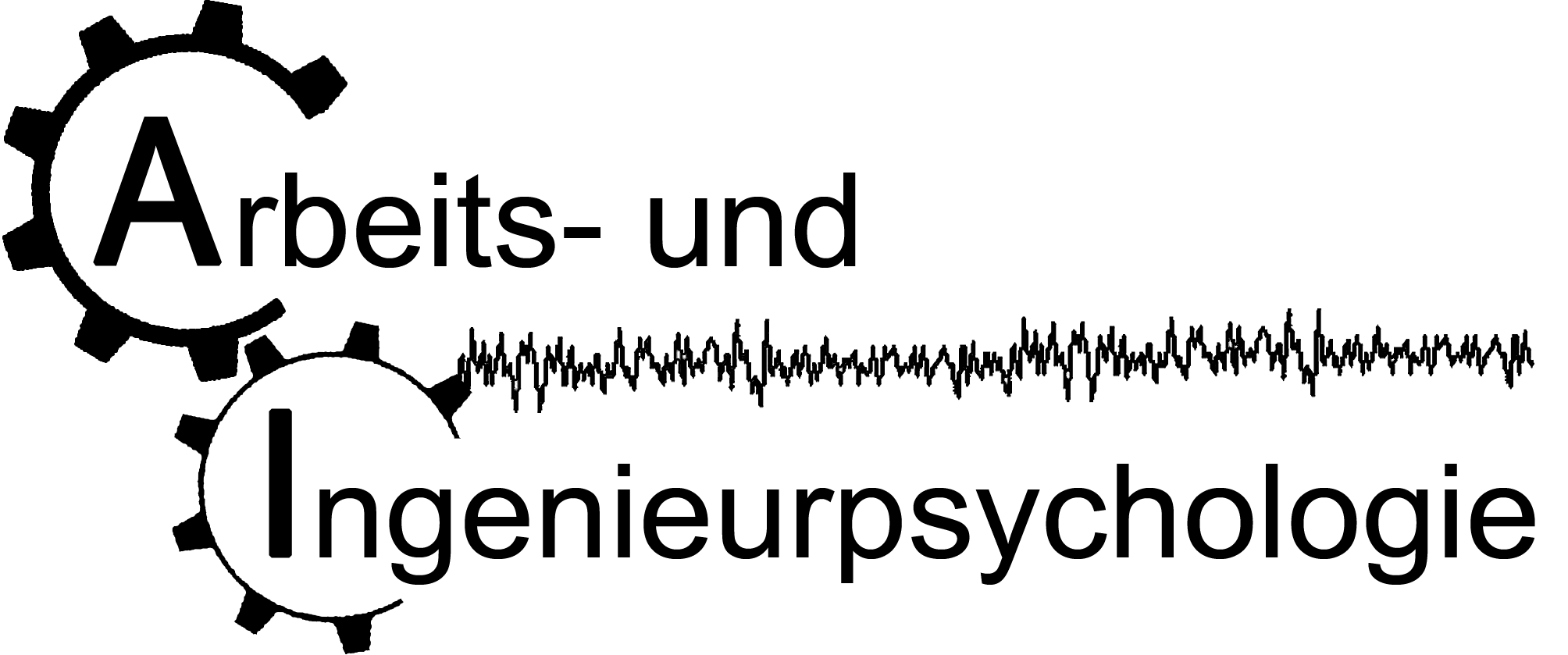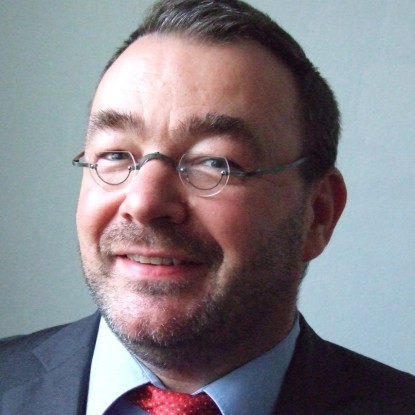Wednesday, 15.02.2023
International Symposium on Technikpsychologie – celebrating 100 years of interdisciplinary research at TU Darmstadt

Registration
You can register here for in-person or remote participation in the symposium:
Participation is free of charge, but for better planning we ask all interested to register for the symposium.
Background information
In 1922, the Psychotechnik Institute was founded at the Technical University of Applied Sciences in Darmstadt, Germany. Dr. Erwin Bramesfeld published a book in 1926 with the title “Psychotechnik als Lehrfach”. The institute and the teaching were located at the Faculty of Mechanical Engineering. With the year of publication, the institute was closed. Bramesfeld did not see an academic future for him i.e. a permanent chair. Under the rising local Nazi Government, he escaped to industry.
Read more about the development of the field Technikpsychologie HERE (opens in new tab).
Call for papers
You can also download the CfP here (opens in new tab).
We like to invite you to submit a contribution to and participate in the International Symposium on Technikpsychologie – celebrating 100 years of interdisciplinary research at TU Darmstadt!
Industry 1.0, the introduction of mass production, started around 1800 and lasted about one century. The following Industry 2.0 introduced production lines and piece-rate work. Psychological and socio-technical problems were observed and systematically studied in the 1920s. 1922, the “Institut für Psychotechnik” was founded in Darmstadt, Germany. Its scope was the interaction of humans in socio-technical work systems. Human factors were identified as important for the individual worker already at that time. Since Industry 3.0, the introduction of the first functional computers in the 1940s, they become increasingly relevant for all of us. Industry 4.0 is characterized by fully automatized productions, supply chains, and mobility processes in the IoT “Internet of Things”, for example, smart homes with their privacy, safety, and security problems. Industry 5.0 develops increasingly effective and satisfying direct human-robot-interactions, artificial intelligence, and machine learning. Finally, technology is networking our lives completely, private and at work.
On the basis of this history, the conference is an outstanding opportunity to present interdisciplinary research and development activities across departments of engineering and natural sciences as well as human and social sciences. Especially contributions about the current mega trends Digitalization, eHealth, eMobility, Human Centred Design and Interaction HCI, Privacy, Safety, Security, Smart Cities, Smart Living, Sustainability are welcome. This interdisciplinary symposium thus seeks submissions from a wide range of disciplines (psychology, engineering, computer science, architecture, design, HCI, law, economics, sociology, philosophy, ethics, medicine, ergonomics, governance and many more) that cover the various aspects of “Technikpsychologie”.
Topics of interest include, but are not limited to psychological aspects of:
- Smart Living & Smart Cities
- Driving, Smart Cars, Motorbikes & E-Bikes
- Internet of Things
- Ambulatory Monitoring
- Locomotion Assistance
- Resilience Engineering
- Aviation
- Augmented Reality
- Virtual Reality
- Human-Robot-Interaction
- Usable Security & Usable Privacy
- Explainable AI
- Technology Education
- Ethical Aspects of Technology
- Legal Aspects of Technology
Submission Deadline: September 2, 2022 → extended Deadline October 31, 2022
Author Notification: November 2, 2022
Proceedings Version: November 30, 2022
Symposium Main Track: February 15, 2023
Symposium Workshops: February 14 & February 16, 2023
All submissions should be uploaded to Editorial Manager using the following link: https://www.editorialmanager.com/tecpsy/. Please create a new account and follow the submission process detailed by the system.
All submissions should contain original work and be written in English. We especially encourage submissions describing empirical studies, literature analyses, and submissions that provide an overview of the state of the art of a research field. Submissions should not, wholly or in part, be under consideration at other venues (conferences, journals, etc.) at the time of submission to TecPsy 2023.
The submissions are subject to a double-blind peer-review process and must therefore be anonymized. This means, all author information and potentially identifying information should be removed from the submission. Own previous work should only be blinded if absolutely necessary and otherwise be referred to in the third person.
Please use the following templates (Overleaf or Word) with references according to the APA format for your submission:
The submissions should not exceed 20 pages excluding well-marked references and appendices limited to 8 pages. Please ensure that your submission is a PDF file generated using the template available from above. Reviewers are not required to read the appendices; hence these should only provide additional supporting information.
Joachim Vogt – TU Darmstadt, Germany
Nina Gerber – TU Darmstadt, Germany
Verena Zimmermann – TU Darmstadt, Germany
Philipp Beckerle – Friedrich-Alexander-Universität Erlangen-Nürnberg (FAU), Germany
Kevin Matthe Caramancion – University at Albany, State University of New York, USA
Patrizia Di Campli San Vito – Glasgow University, Scotland
Tobias Dienlin – University of Vienna, Austria
Yvonne Ferreira – FOM Frankfurt, Germany
Thomas Franke – Universität zu Lübeck, Germany
Tim Hagemann – Fachhochschule der Diakonie, Germany
Jop Havinga – Griffith University, Brisbane, Australia
Lutz Jänke – University Zurich, Switzerland
Angelika Kern – TU Darmstadt, Germany
Alisa Lindner – Hochschule Coburg, Germany
Hans-Joachim Linke – TU Darmstadt, Germany
Karola Marky – Glasgow University, Scotland
Otilia Pasnicu – TU Darmstadt, Germany
Karen Renaud – Strathclyde University, Glasgow, Scotland
Christian Reuter – TU Darmstadt, Germany
Christoph Santel – Garrecht Avionik GmbH, Germany
Jürgen Sauer – Université de Fribourg, Switzerland
Alina Stöver – TU Darmstadt, Germany
Angela Dressler – TU Darmstadt, Germany
Yvonne Ferreira, FOM, Frankfurt, Germany
Nina Gerber, TU Darmstadt, Germany
Otilia Pasnicu, TU Darmstadt, Germany
Alina Stöver, TU Darmstadt, Germany
Verena Zimmermann, TU Darmstadt, Germany
The TU Darmstadt & the FAI
TU Darmstadt, founded in 1877, is one of the medium-sized universities in Germany with a good 25,000 students and almost 5,000 employees. In the research group of work and engineering psychology, human behavior and experience are studied, predicted, modeled, and improved. We aim to optimize the interaction of people with technical and organizational environments.
Darmstadt
The International Symposium on Technikpsychologie will be held in Darmstadt, Germany. Darmstadt is a large city in southern Hesse, which is not only a science city but also a cultural center. The city is still characterized by the charm of the residence city, but it is also influenced by modernity.
Attractions
Attractions include the artists' colony on Mathildenhöhe, which has been a UNESCO World Heritage Site since July 2021. It can be reached on foot from the Institute of Psychology in Alexanderstraße within 15 minutes or by F-bus. The Darmstadtium is also only a few minutes away. From there, you can look directly at the Darmstadt Residence Palace. For more information, please visit the Darmstadt tourism website.
Directions to the Institute of Psychology
The Institute of Psychology is located close to the city center of Darmstadt. If you want to travel from Darmstadt's main train station, you can take the F-Bus or the H-Bus to the stop “Alexanderstraße/TU”. The building is located on the other side of the street when you get off.
Click here for the campus navi.
Hotels
We have compiled for you a list of hotels near the institute:
- Welcome Hotel Darmstadt
Karolinenplatz 4
64289 Darmstadt
Tel.: +49 6151 39140
Price Single room/Night: ca. 92,- Euro
Distance to institute: 280 m - Hotel Ernst-Ludwig
Ernst-Ludwig-Str. 14
64283 Darmstadt
Tel.: +49 6151 26011
Price Single room/Night: ca. 72,- Euro
Distance to institute: 700 m - Best Western Hotel Darmstadt Mitte
Grafenstr. 31
64283 Darmstadt
Tel.: +49 6151 28100
Price Single room/Night: ca. 80,- Euro
Distance to institute: 1,1 km - Felix Hotel Darmstadt
Kasinostr. 4
64293 Darmstadt
Tel.: +49 6151 3973720
Price Single room/Night: ca. 50,- Euro
Distance to institute: 1,2 km - THE Darmstadt
Kasinostr. 6
64293 Darmstadt
Tel.: +49 6151 96133
Price Single room/Night: ca. 67,- Euro
Distance to institute: 1,2 km - DORMERIO Hotel Darmstadt
Frankfurter Str. 99
64293 Darmstadt
Tel.: +49 6151 96133
Price Single room/Night: ca. 60,- Euro
Distance to institute: 1,8 km - IntercityHotel Darmstadt
Poststraße 12
64293 Darmstadt
Tel.: +49 6151 906910
Price Single room/Night: ca. 76,- Euro
Distance to institute: 2,3 km - Holiday Inn Express Darmstadt
Dornheimer Weg 7
64293 Darmstadt
Tel.: +49 6151 800820
Price Single room/Night: ca. 79,- Euro
Distance to institute: 2,5 km - Best Western Plus Plaza Hotel Darmstadt
Am Kavalliersand 6
64295 Darmstadt
Tel.: +49 6151 7377500
Price Single room/Night: ca. 96,- Euro
Distance to institute: 2,6 km - B&B Hotel Darmstadt
Zweifalltorweg 4
64293 Darmstadt
Tel.: +49 6151 96720
Price Single room/Night: ca. 62,- Euro
Distance to institute: 2,6 km
Acknowledgement
We gratefully thank TU Darmstadt’s Vice President for Administration and Financial Affairs, the Vereinigung von Freunden der Technischen Universität zu Darmstadt e.V. and Kurt and Lilo Werner RC Darmstadt Foundation for their financial support of the conference.


